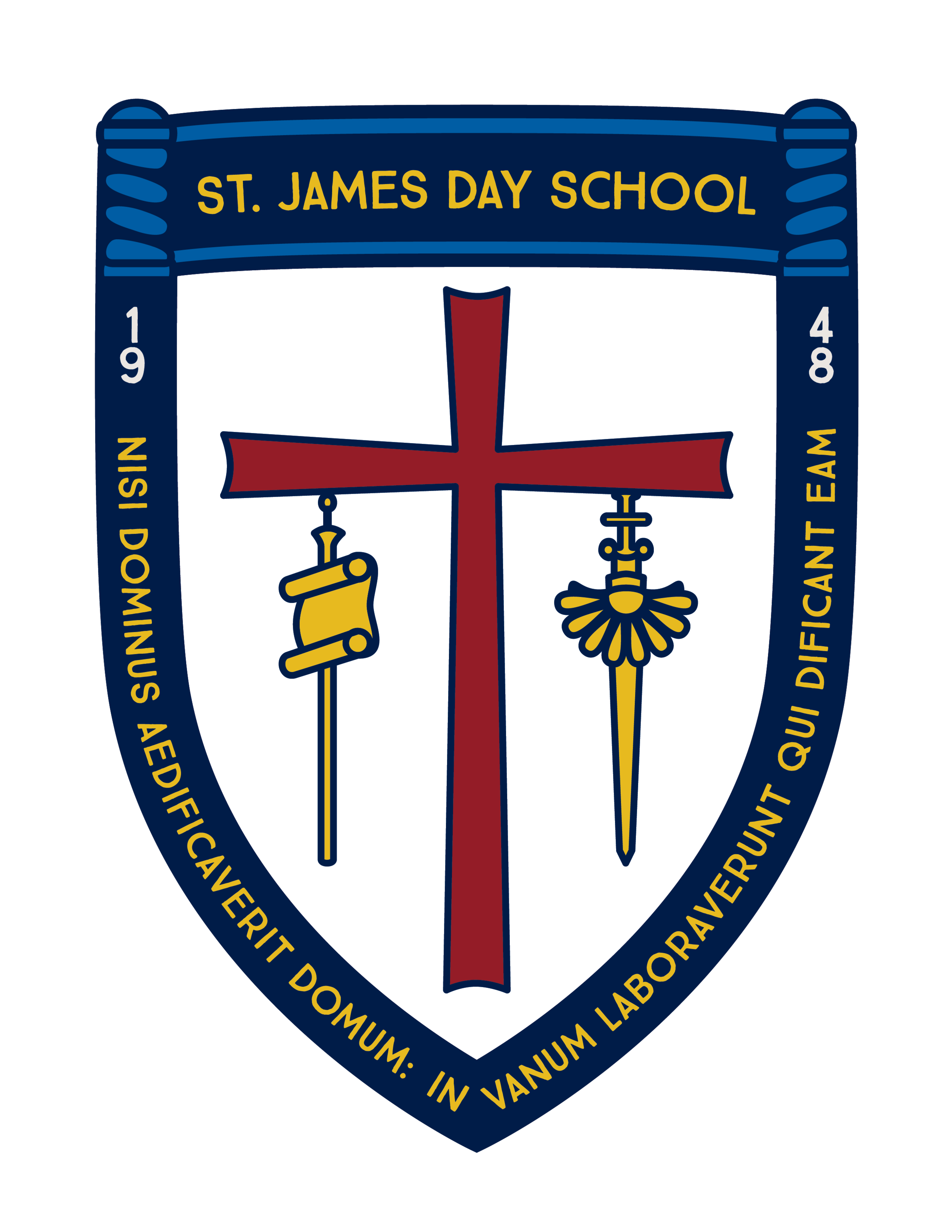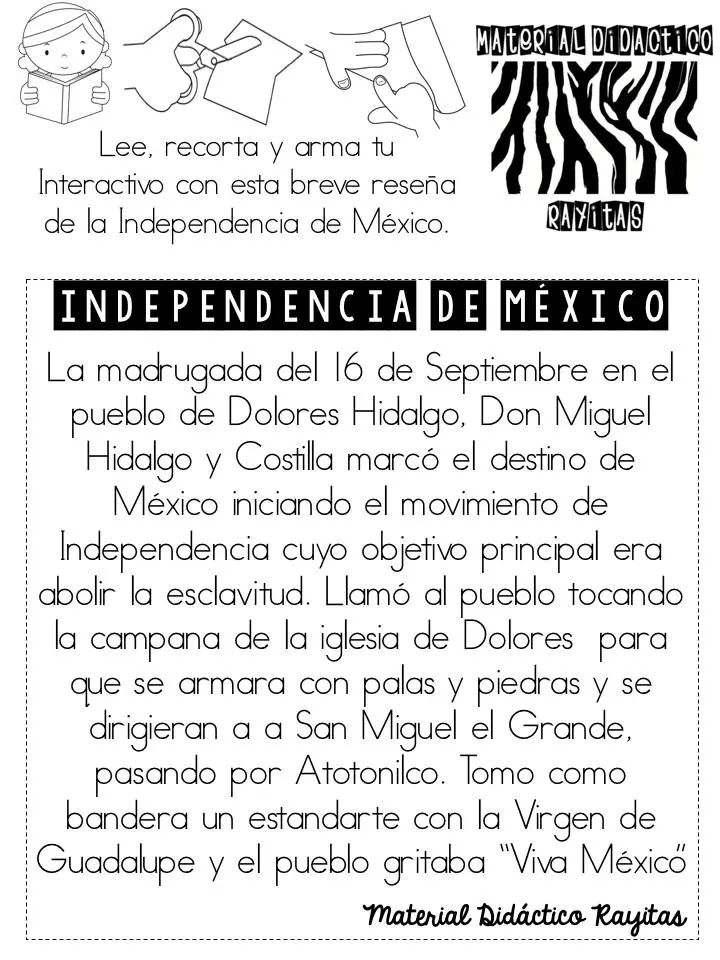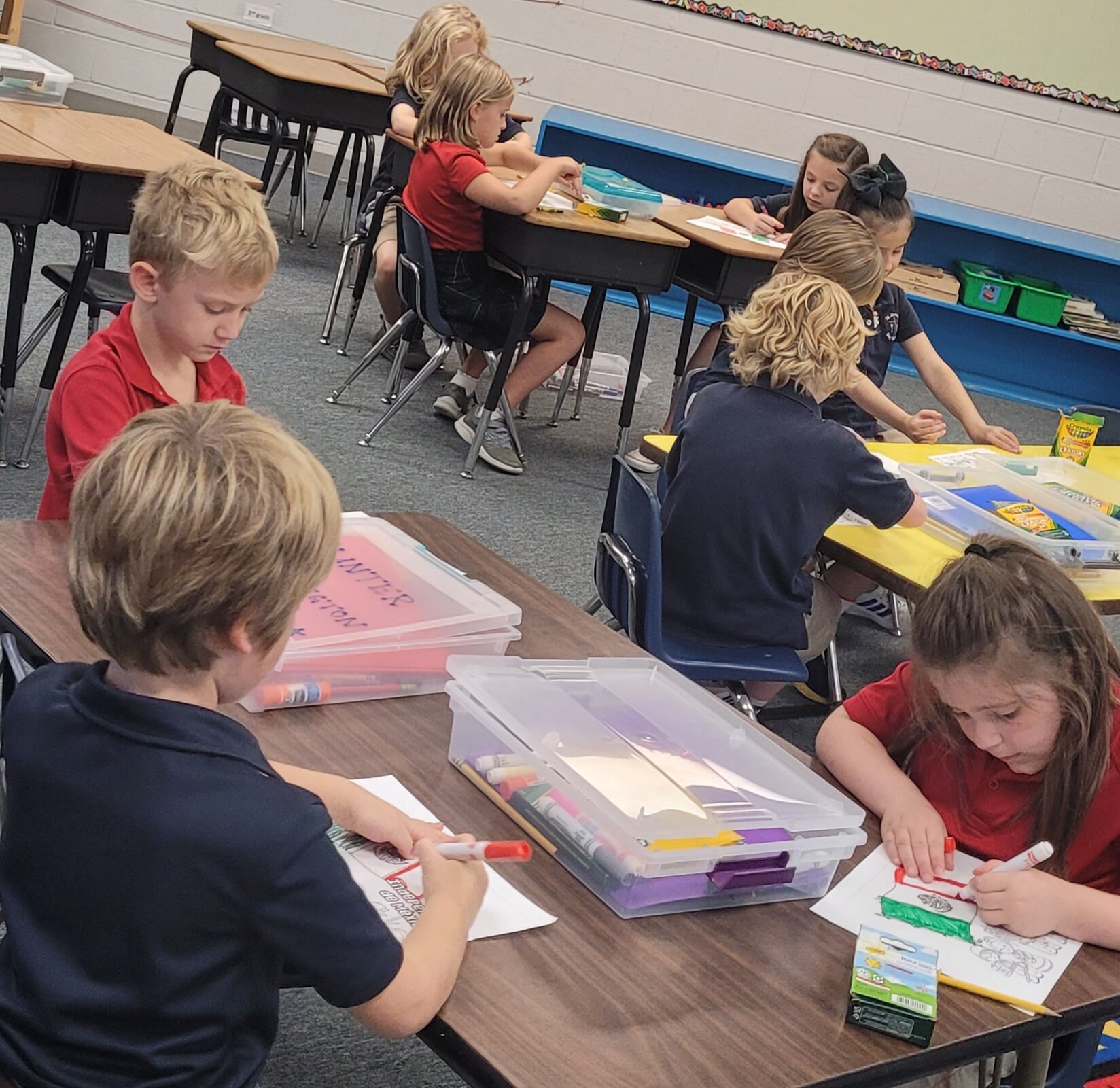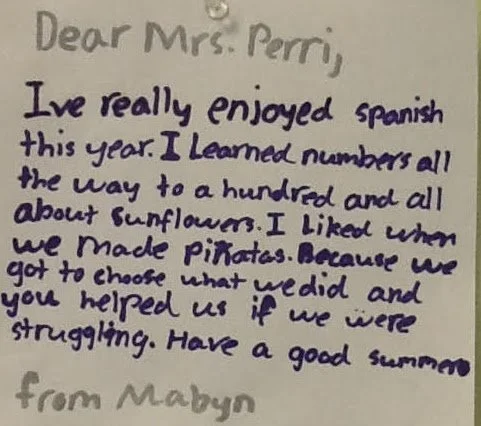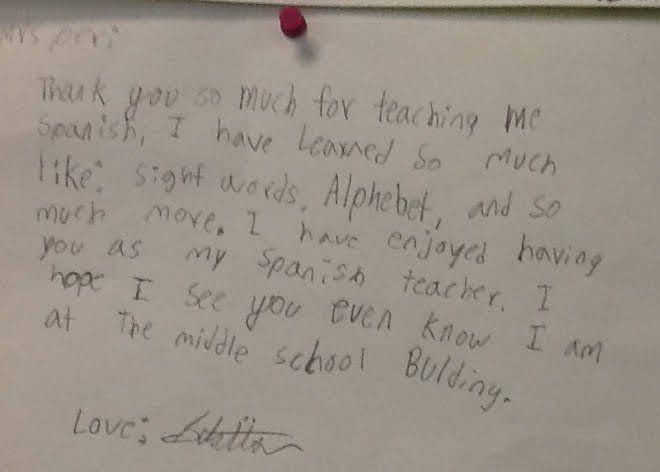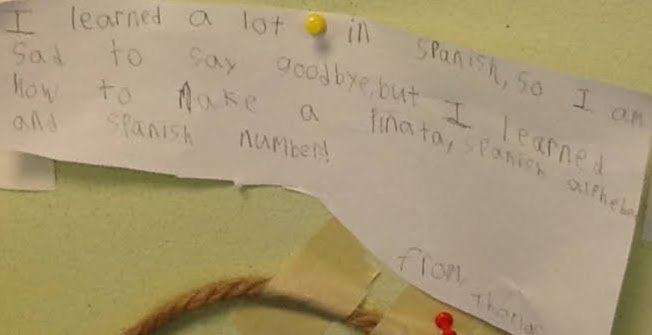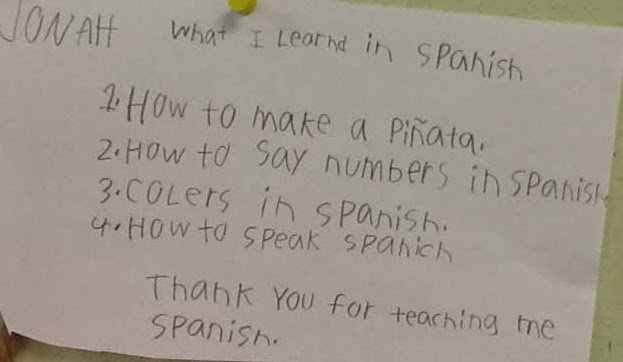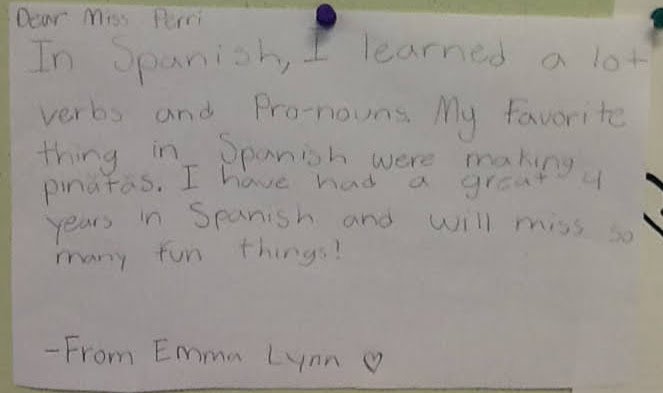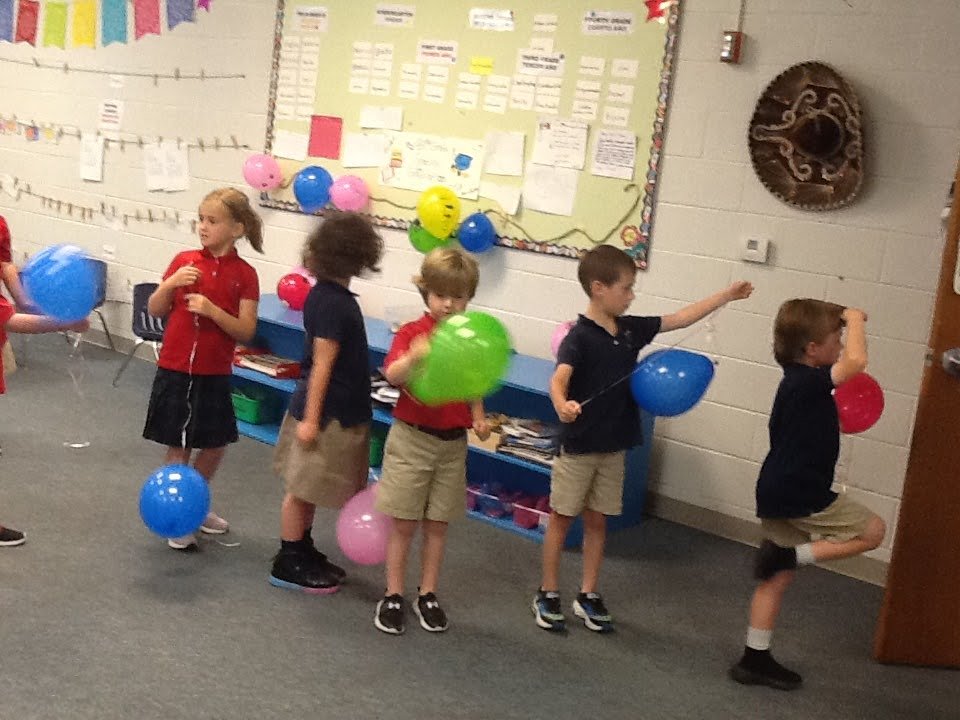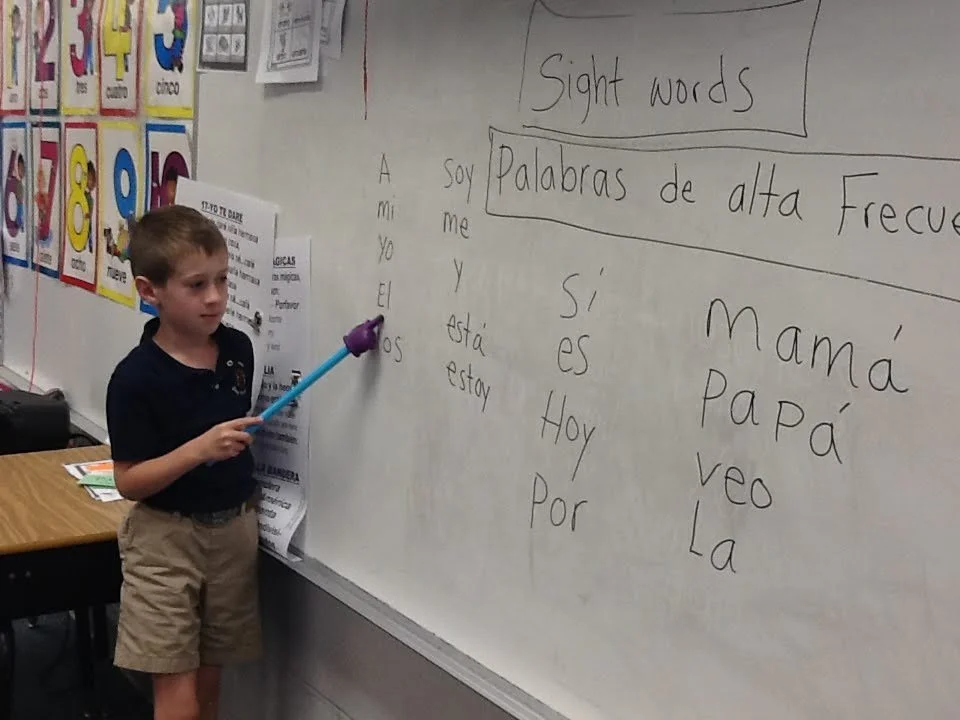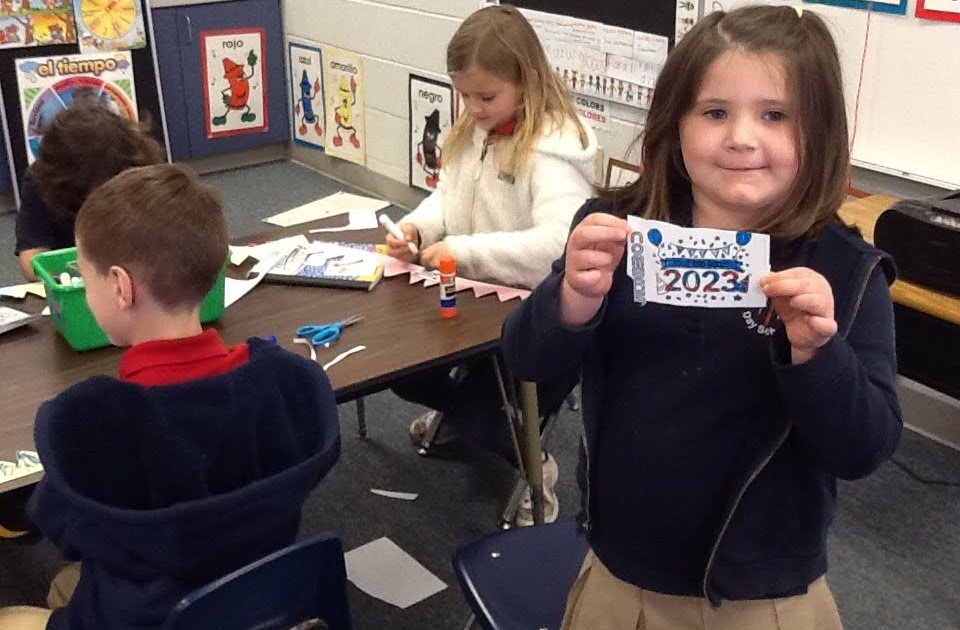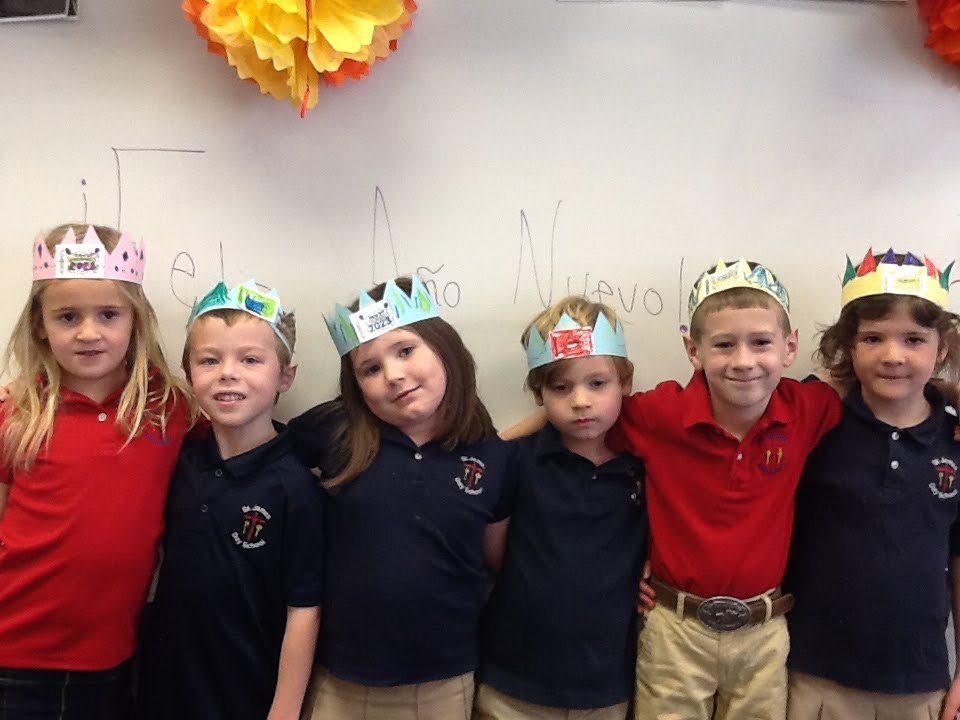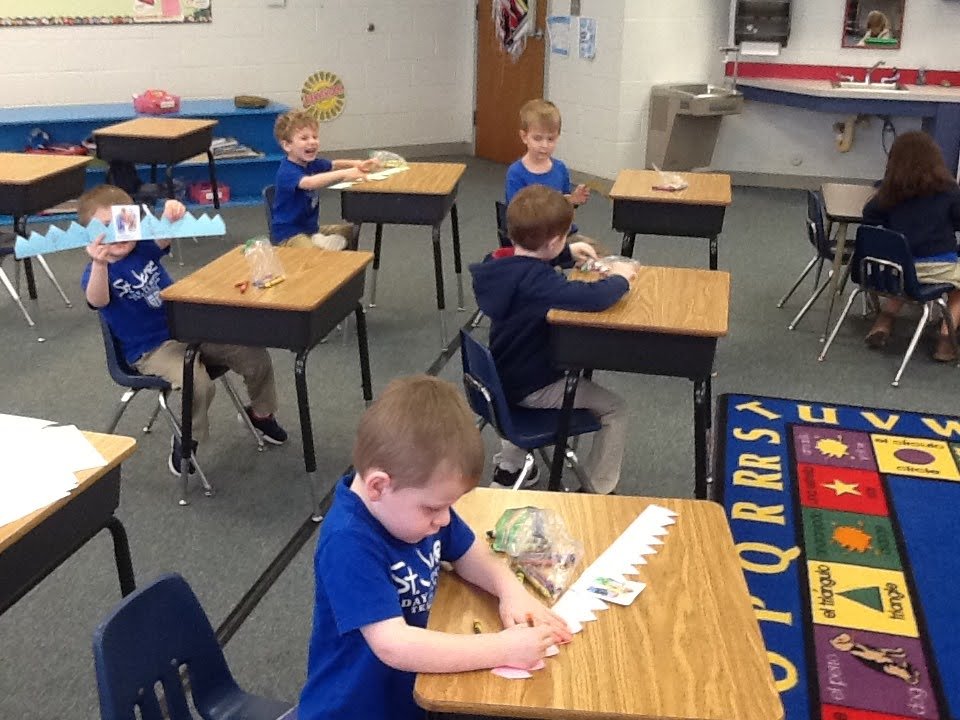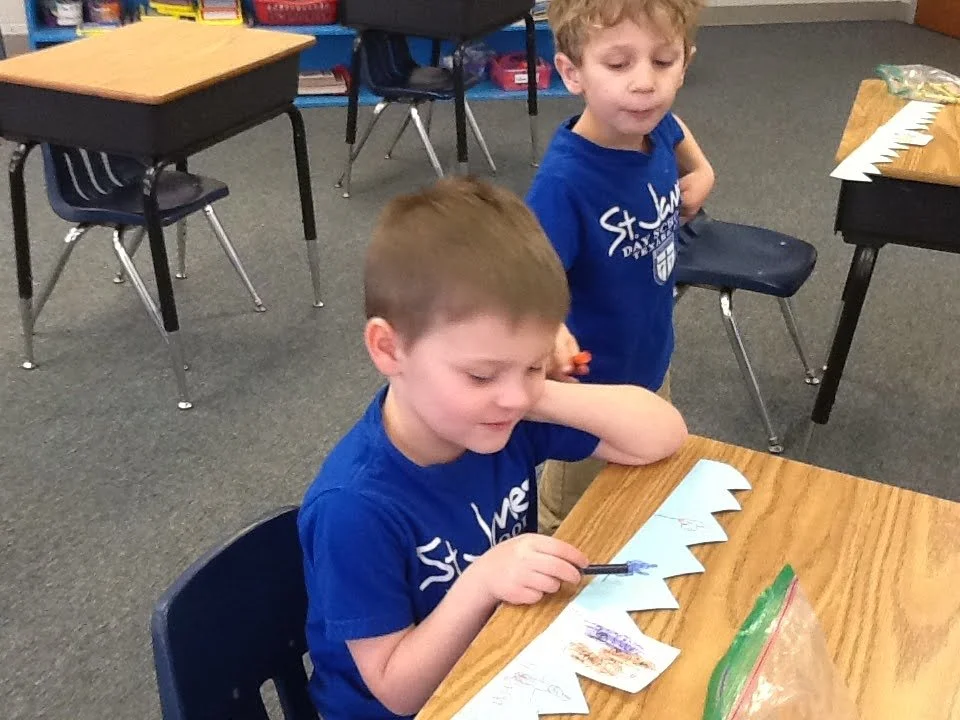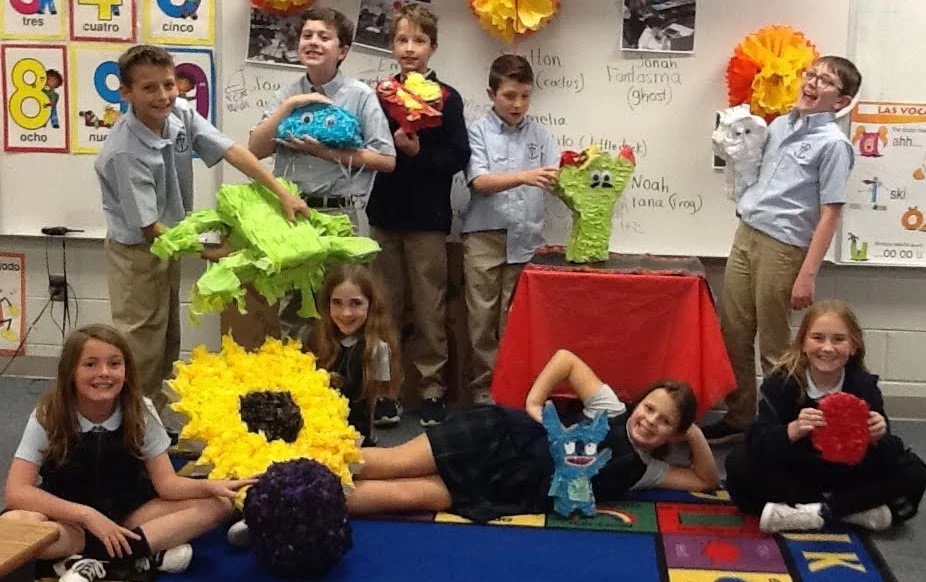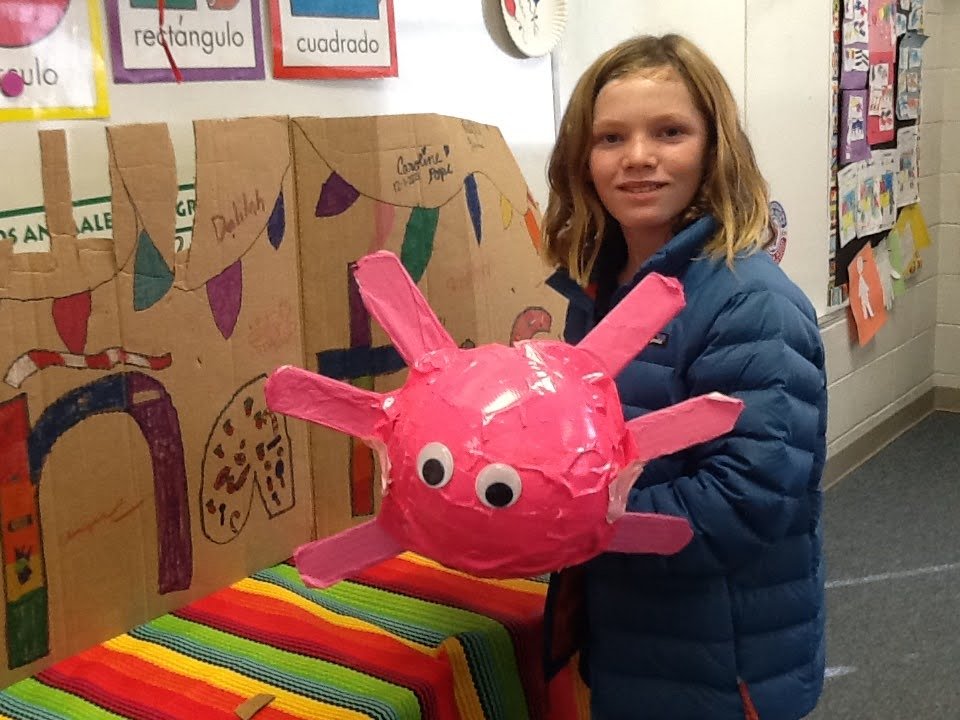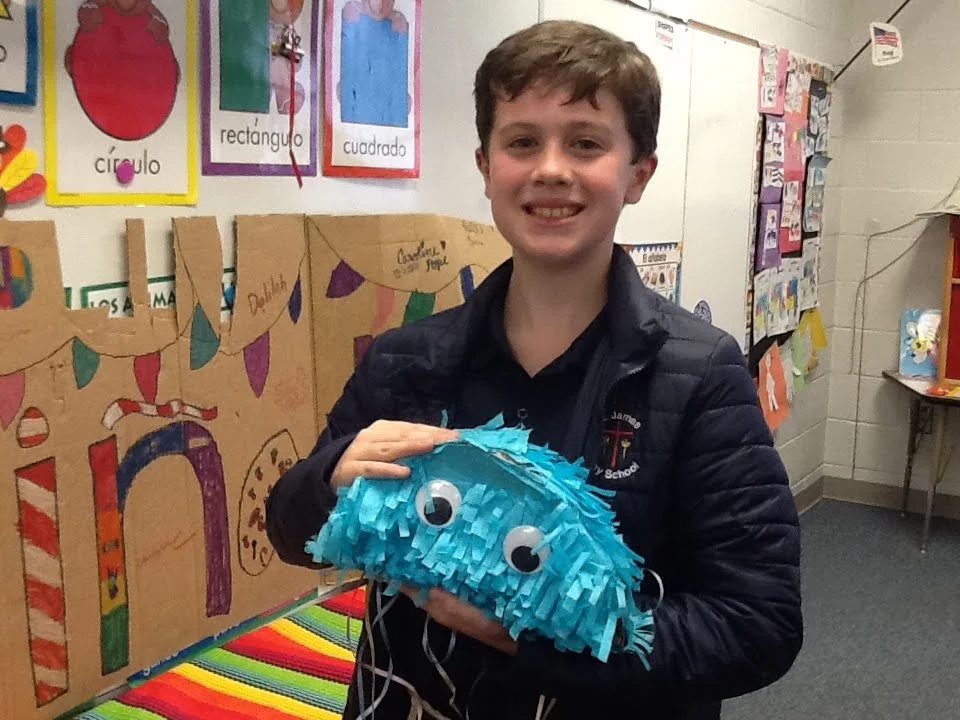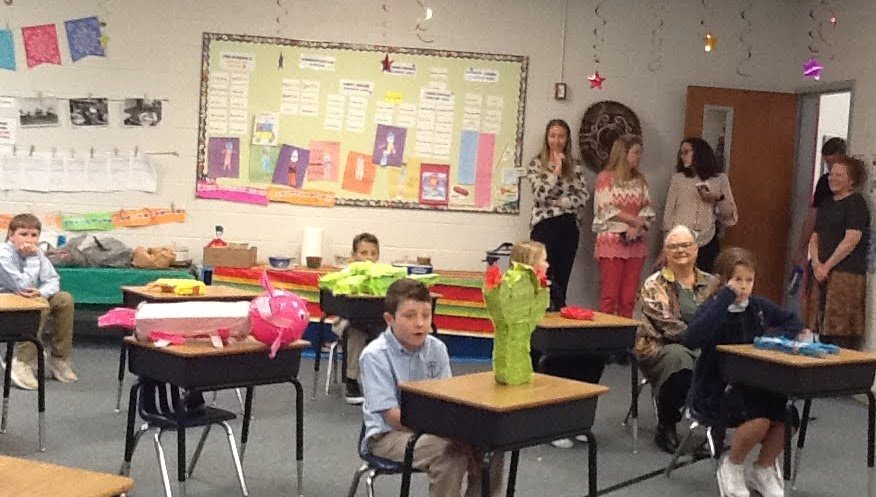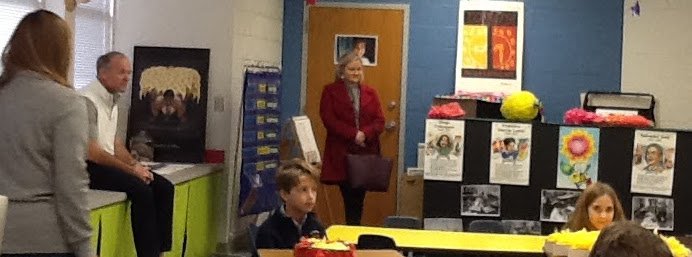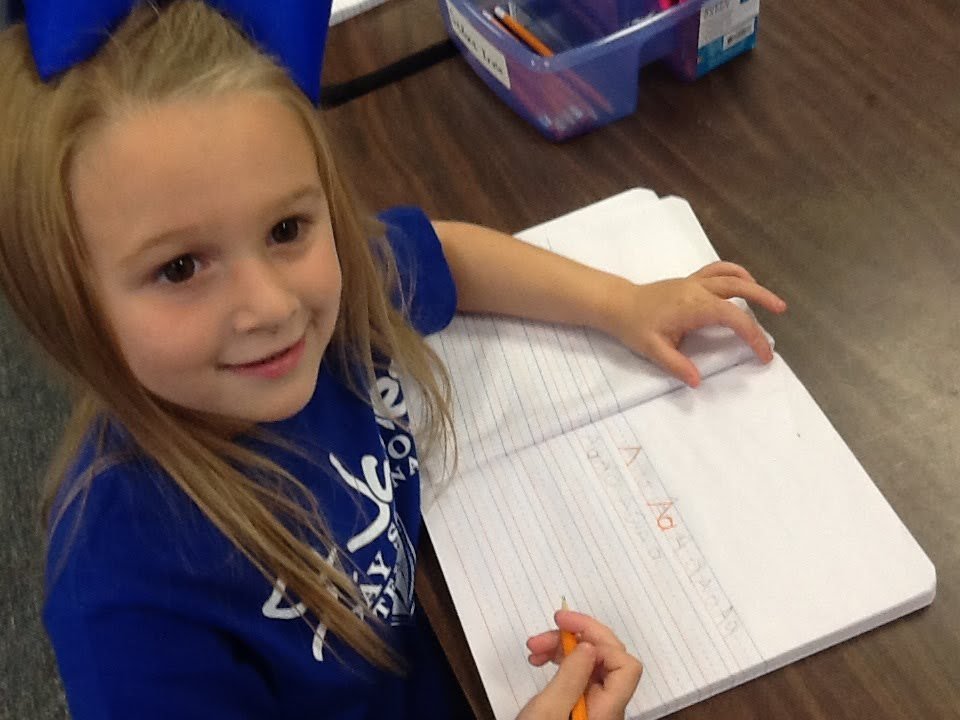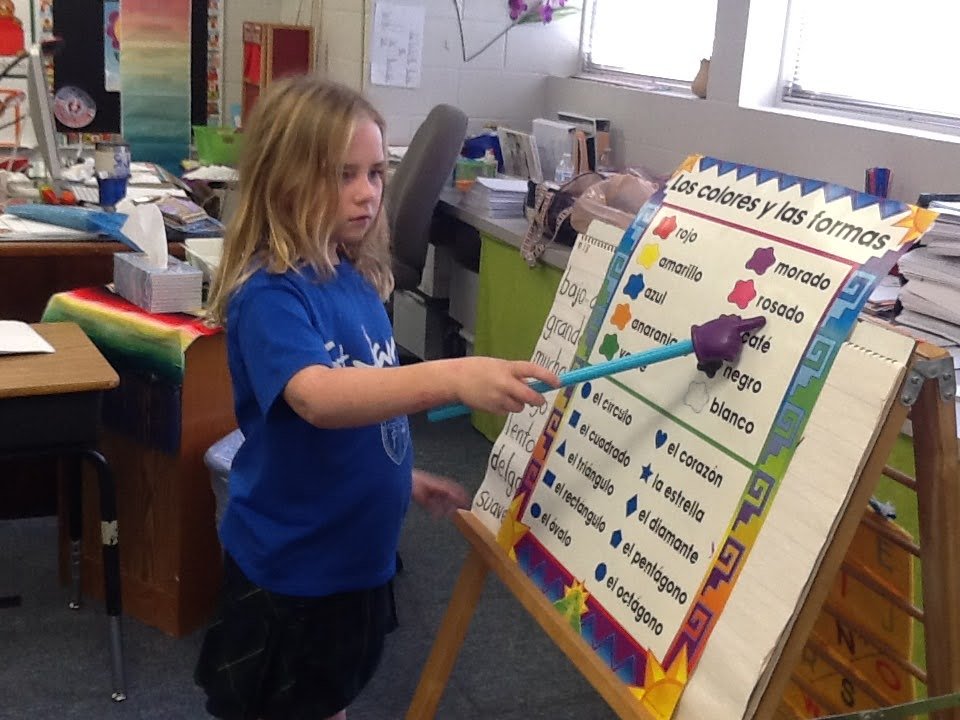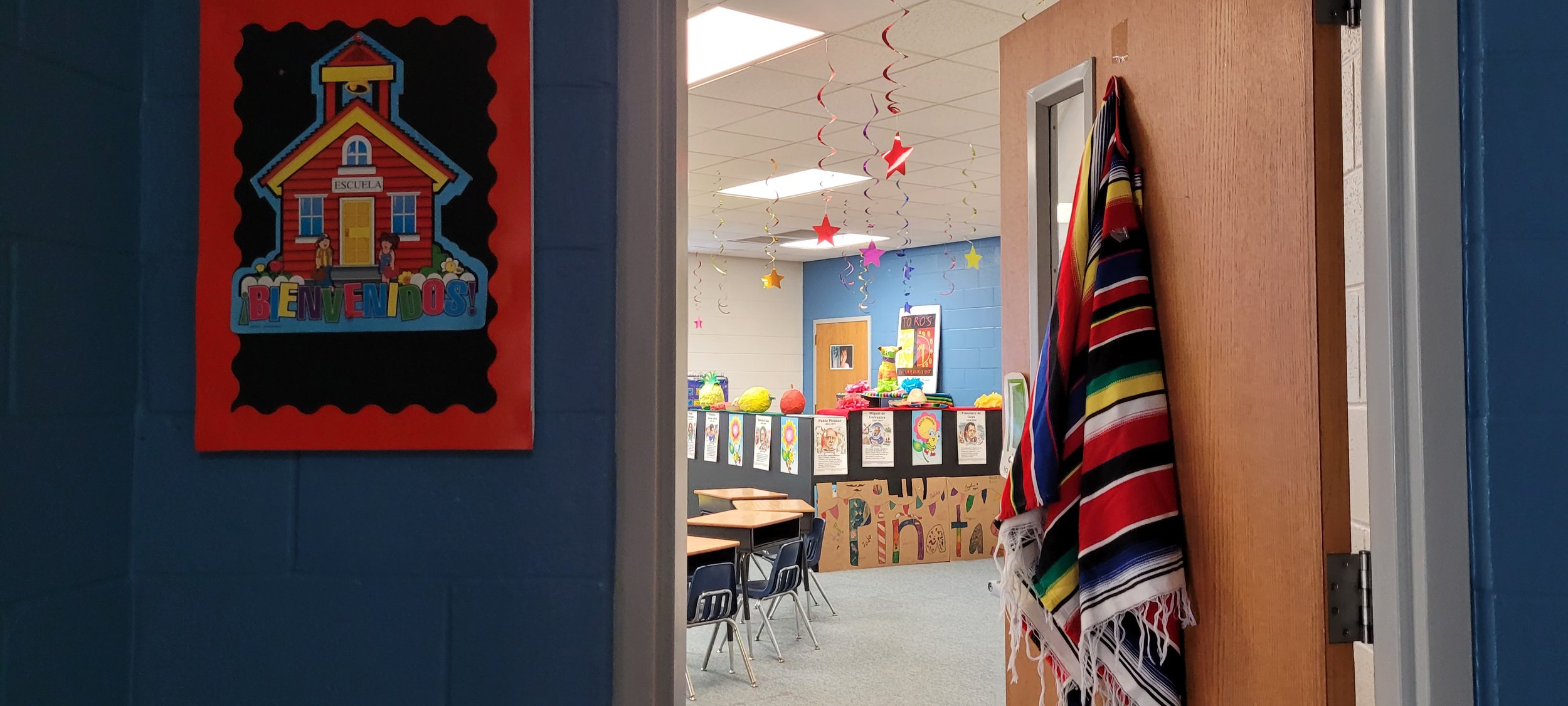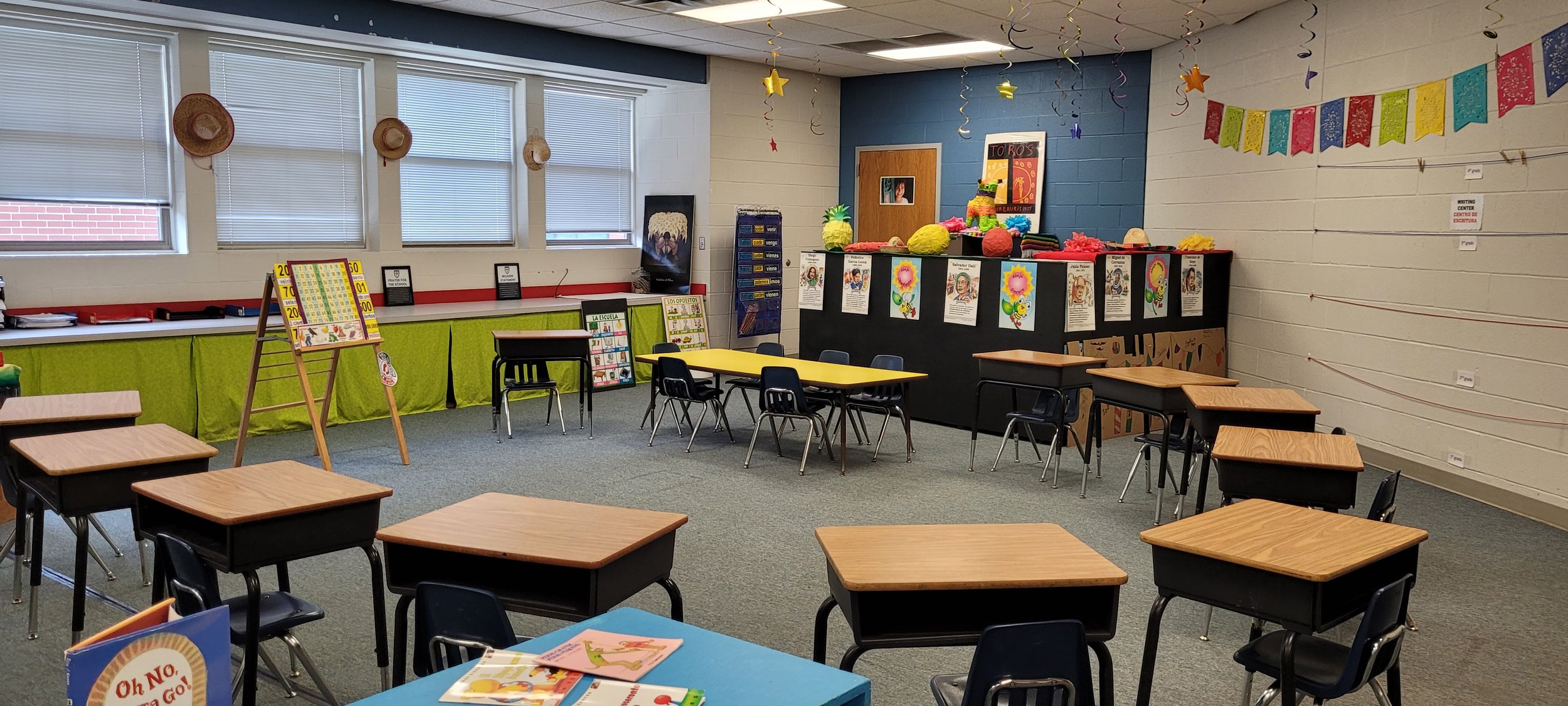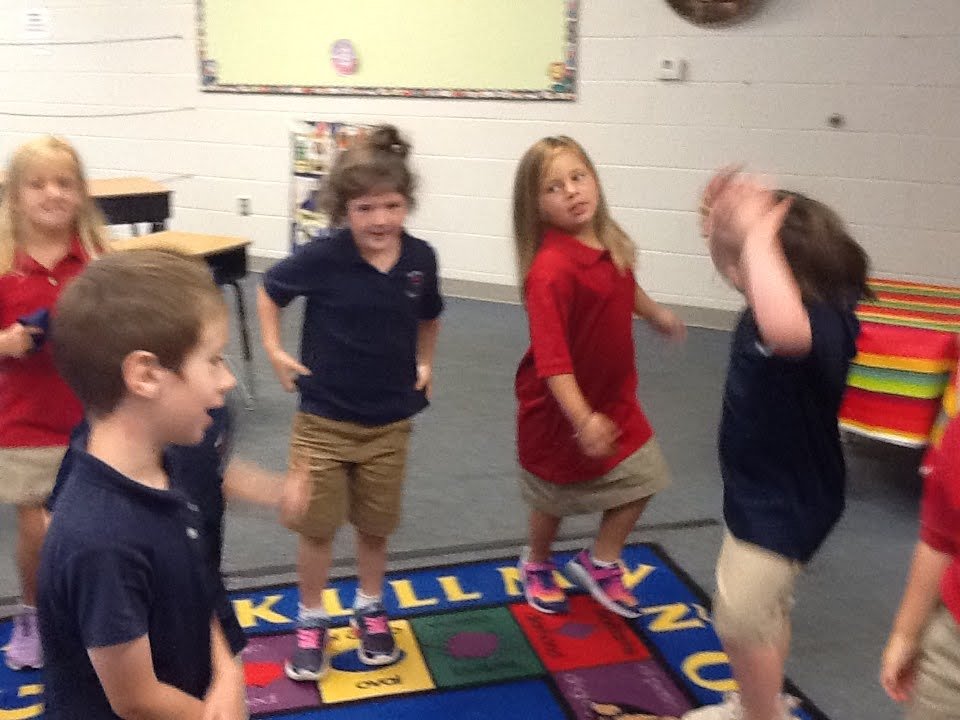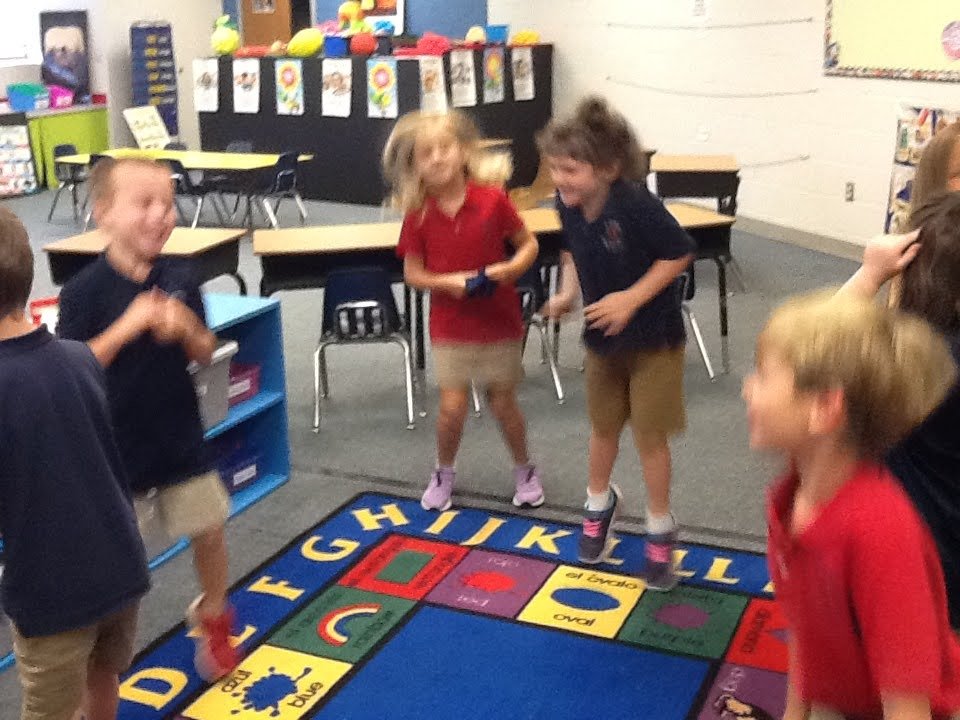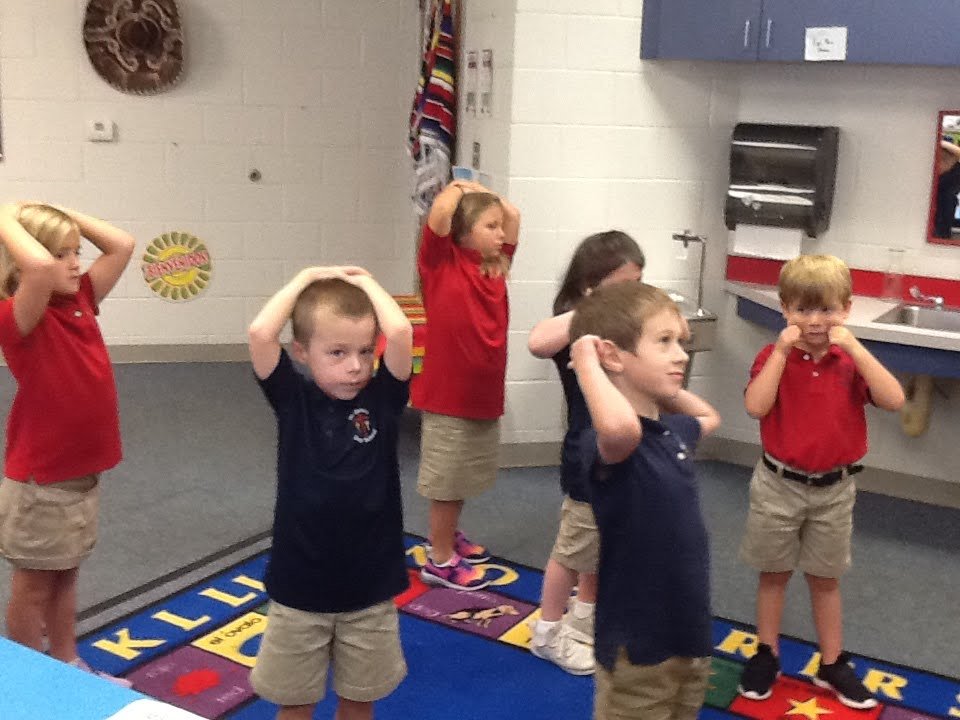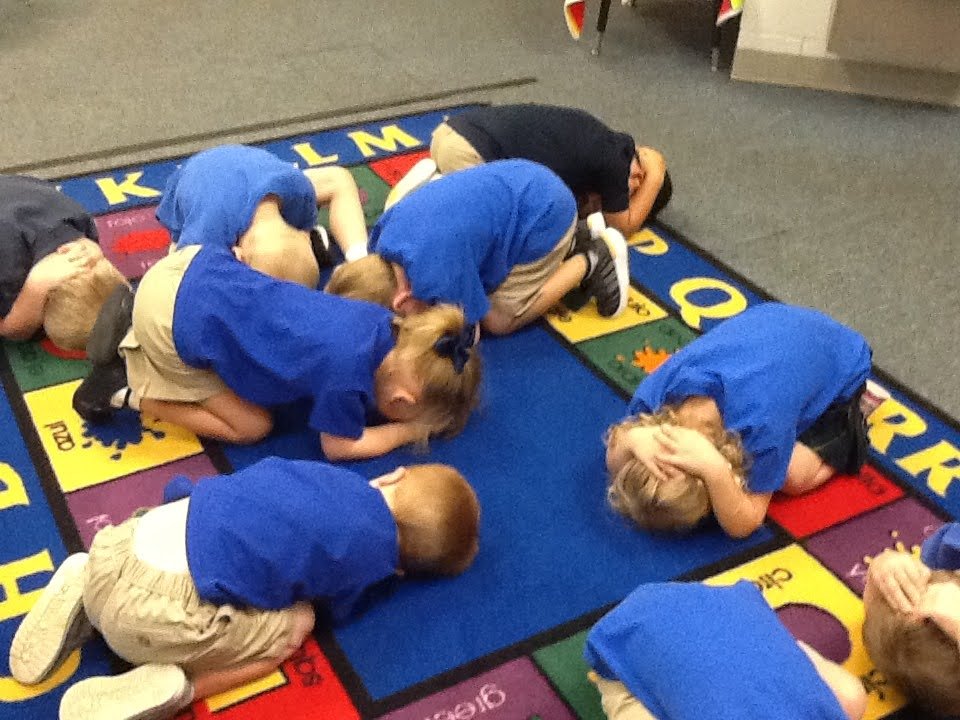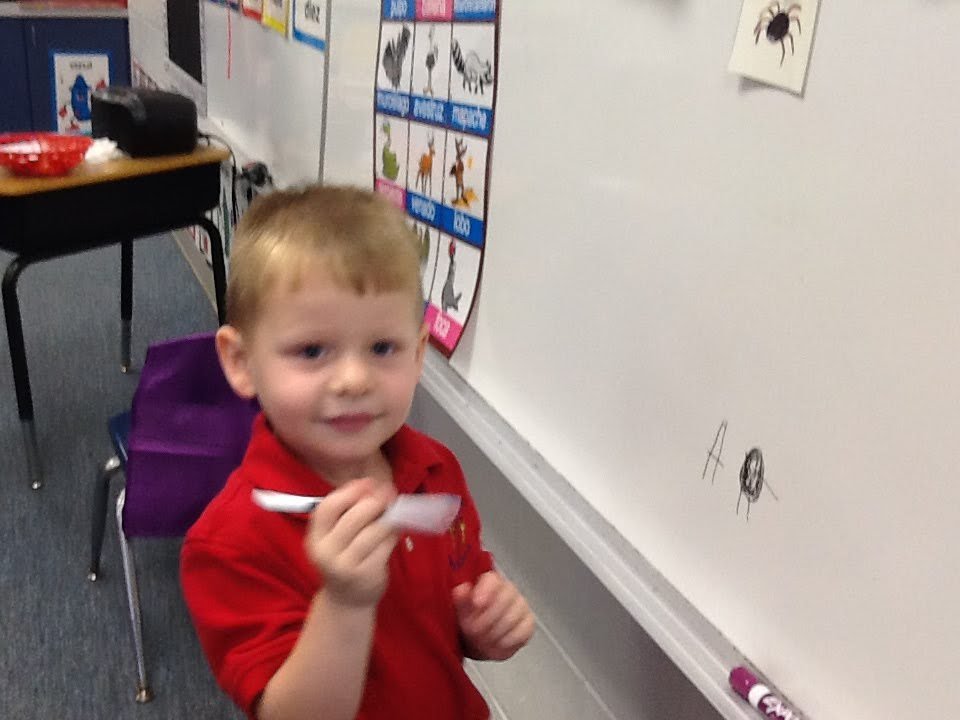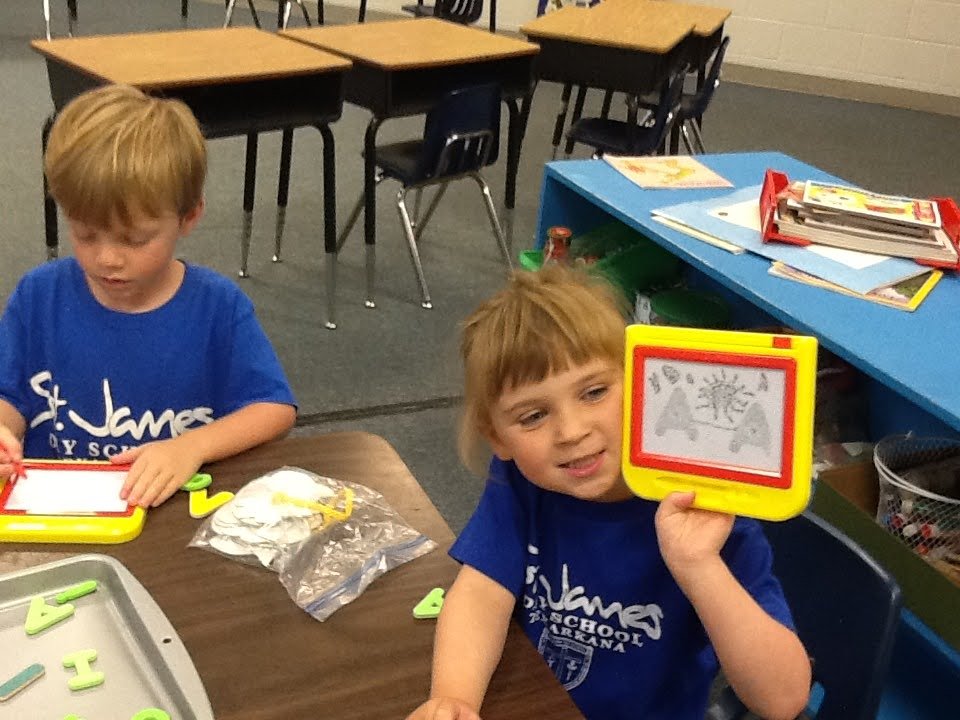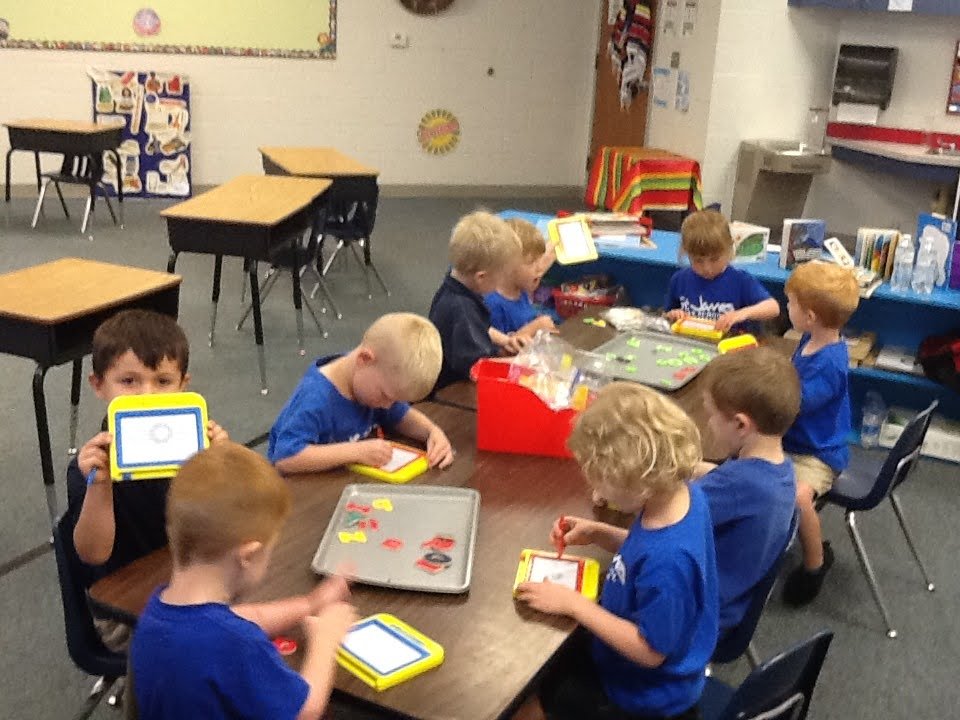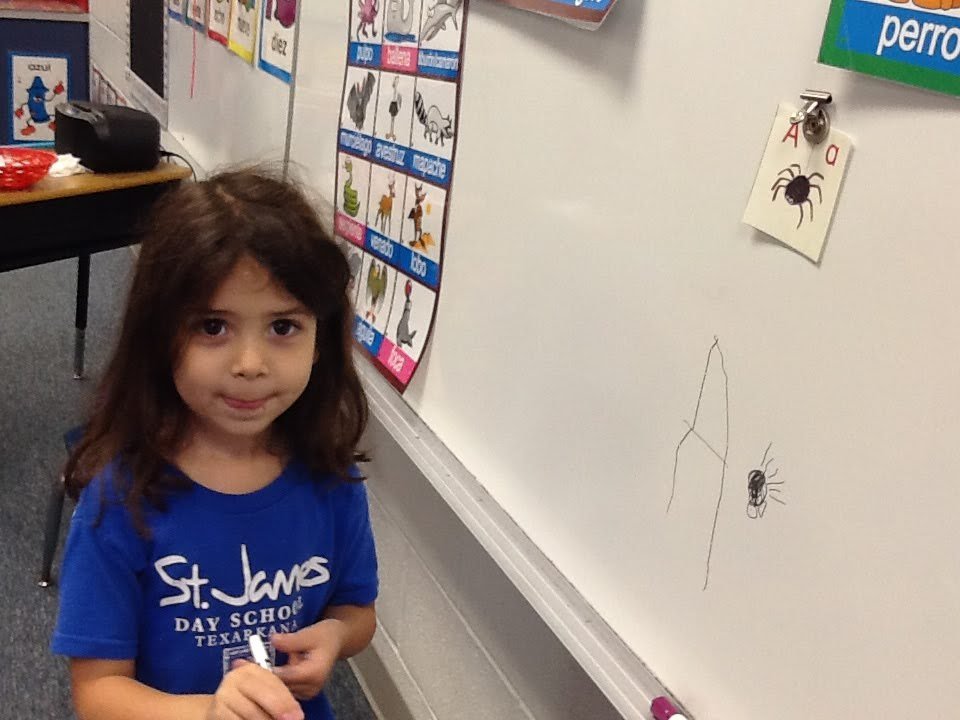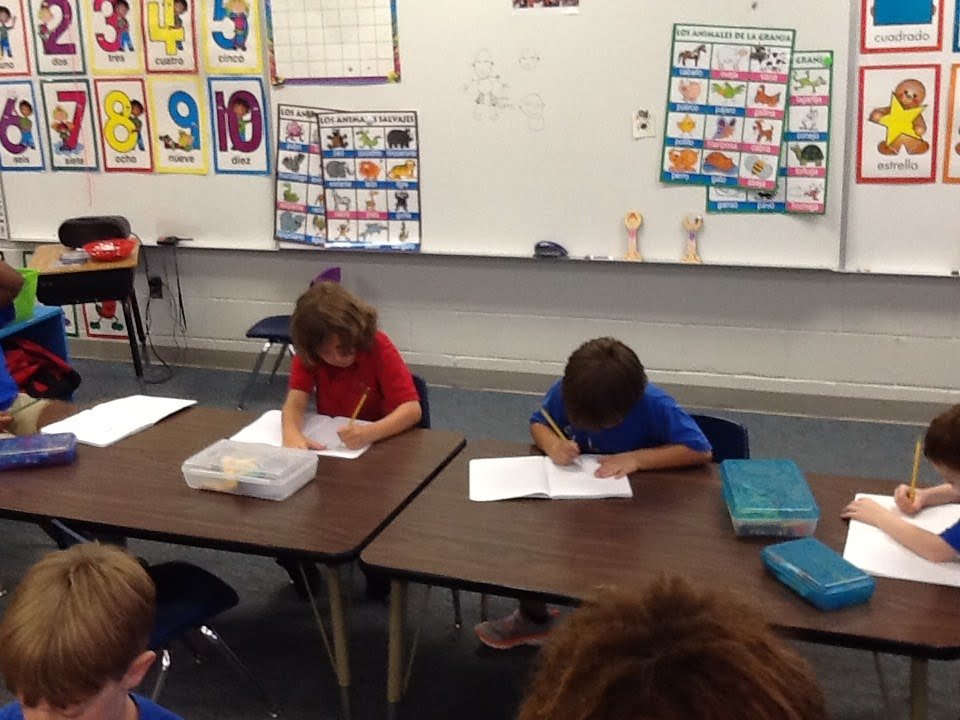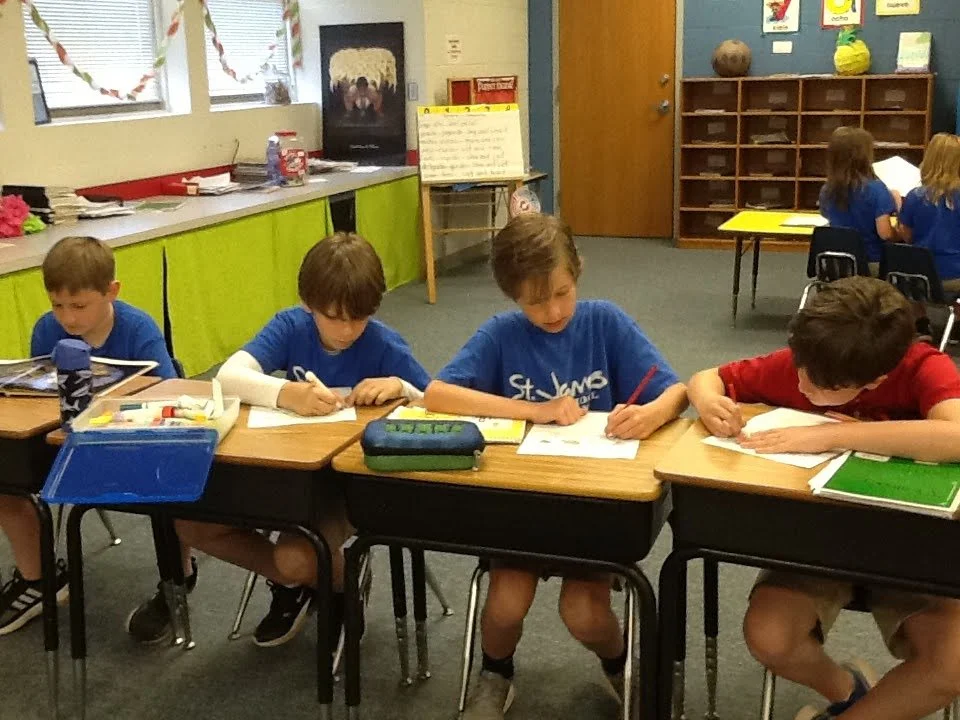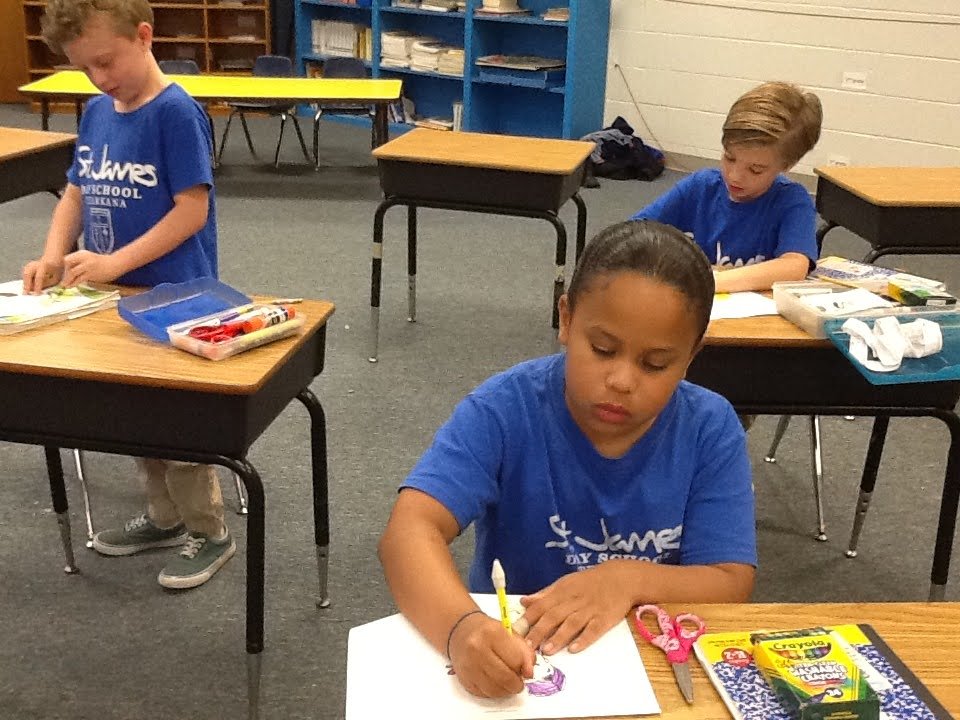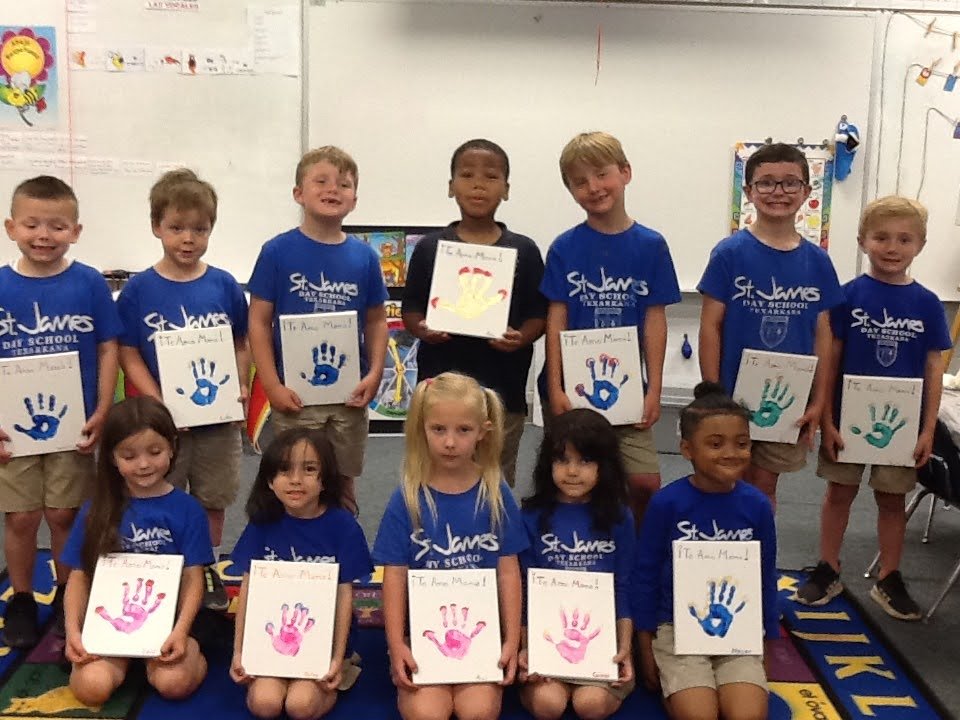After learning a song in Spanish about colors, students practiced pronouncing the Spanish words for the different colors. Rolling certain Spanish letters with playdough was another way students learned while having fun. They also colored and traced their names which helped them improve their motor skills.
One way to learn Spanish is by singing a song. Students in Spanish classes are singing songs in Spanish and learning what the lyrics means. This helps them learn Spanish words and sentence stracture.
Happy Independence Day, Mexico!
To learn about Mexican culture, students read a short article about Mexico Independence Day. They read what happened at dawn on September 16th, 1810 in the Mexican town of Dolores. They read about the leader of the movement, Don Miguel Hidalgo y Costilla. After reading about Miguel Hidalgo y Costilla, students got together in small groups and answered some questions, such as what did Father Hildago do for the people of Mexico. Other students learned about the Mexican flag and colored it in on a worksheet.
We are off to a great start!
The students at St. James have the opportunity to learn Spanish at a young age.
These couple of weeks the students have learned important information about drills and safety at school. They have also learned how to greet people in Spanish, learn the word for different colors in Spanish, and how to conjugate basic verbs.
I can't believe it, but the end of the school year is almost here. I feel sad because I will not be teaching Spanish anymore to the 4th graders. However, I am happy to know that these students are going to have other great teachers to learn from at Middle School.
I wish you a great summer and hope to see you next year at St. James Day School.
Many people confuse Mexico’s Independence Day and Cinco de Mayo, but our students are learning the difference. Mexico Independence Day is a celebration of the day when Father Miguel Hidalgo y Costilla launched the country’s independent movement against the Spanish-led government in Mexico City. This day, September 16, 1810, is known as the Grito de Dolores (Shout of Dolores) because it happened in the city of Dolores, Mexico.
Cinco de Mayo commemorates a great Mexican victory over an invading French army. On May 5, 1862, Mexican troops defeated an army sent by the Emperor of France, Napoleon III, at the famous Battle of Puebla.
People like to celebrate these important dates in Mexican history, but the two dates celebrate distinct events. In learning about Mexican history and culture, our students have learned the difference.
Students are learning to read some sight words (palabras de alta frecuencia) in Spanish. They are learning to sound out words. When students are able to sound words out, they are better a able read aloud and learn how to pronounce Spanish the words correctly.
Wow! These students are taking the Spanish test seriously. They are ready to do well. They are taking the test on five important words. We call them the magic words. The magic words are thank you, you’re welcome, you are very kind, please, and I’m sorry.
Since today is St. Patrick’s Day, they are wearing green.
The second-grade students learned some body parts and some movements. They learned the lyrics of a song that is called chiqui gua chiqui gua. The song mentions rising their arms up and lowering their head down as they keep singing chique gua chique gua.
SEGUNDO GRADO CANTANDO LA CANCION CHIQUI GUA CHIQUI GUA
In honor of grandparents, on Grandparents’ Day, St. James students practiced reciting a poem in both Spanish and English. The students in fourth grade did an excellent job reciting the poem. They worked hard and we are proud of them! Go, 4th-grade students! (Thank you Mrs. Cole for all your help!)
The Wise Men Day—---El Dia de los Reyes Magos
Students leaned how many Hispanic kids celebrated the Day of th Wise Men (El Dia Los Reyes Magos). Instead of exchanging presents on Christmas Day, in the Hispanic tradition, presents are exchanged the same day that the Wise Men (Los Reyes Magos) presented gifts to baby Jesus. The Day of the Wise Men is on January 6. St. James students learned that Hispanic children write letters not to Santa Claus but to the Three Wise Men. They then leave the letter inside their shoes. On the morning of January 6, the children wake up early to see what gifts the Wise Men have brought for them. While the children are having fun with ther new toys, the parents are preparing the Kings’ Wreath. The Kings’ Wreath is a wreath of sweet bread, called La Rosca. Usually, everyone also drinks a cup of hot chocolate to go along with a piece of the La Rosca. St. James students learned how to make and decorate the crowns of the Wise Men (coronas de los Reyes Magos). After decorating their crowns, they also had fun wearing them.
PIÑATAS’ PRESENTATION
The students’ presentation of their piñatas was a success! After the students presented their pinatas, I gave them some questions to answer. The first question was what was the most challenging thing about making a piñata? The second question was what was your favorite part about your piñata? The last was if you were making a piñata again, what would you change or do differently? The questions made the students reflect on the activity and bring it to a close–that is until they make their next piñata!
DIVIRTIENDOSE (HAVING FUN)
TOWNES CON SU AJOLOTE (AXOLOTL).
ANNA CON SU MORA (BLACKBERRY).
MABYN CON SU GIRASOL ( SUNFLOWER).
NOAH CON SU RANA (FROG).
STATTON CON SU NOPAL (CACTUS).
SANDER CON SU DRAGON DE FUEGO (FIRE DRAGON).
JONAH CON SU FANTASMA (GHOST).
REAGAN CON SU CEREZA (CHERRY).
EMMA CON SU STITCH.
AMELIA CON SU PATITA (A LITTLE DUCK)
THANKSGIVING DAY IS A WONDERFUL PART OF AMERICAN CULTURE. THE STUDENTS ARE LEARNING TO READ AND WRITE SOME NEW VOCABULARY THAT DESCRIBE TO WHOM AND FOR WHAT THEY ARE THANKFUL.
ESTAMOS DIBUJANDO UN PAVO PARA EL DIA DE ACCION DE GRACIAS. --------DRAWING A TURKEY FOR THANKSGIVING DAY.
ESCRIBIENDO UN VOCABULARIO NUEVO EN ESPAÑOL.————WE ARE WRITING NEW VOCABULARY IN SPANISH.
DIVIRTIÉNDOSE MUCHO.------------ HAVING FUN
YO SE COMO ESCRIBIR PAPÁ EN INGLÉS.-----I KNOW HOW TO WRITE DAD IN ENGLISH.
COLOREANDO MI PAVO.———-COLORING MY TURKEY
PUEDO ESCRIBIR TURKEY EN ESPAÑOL.---- I CAN WRITE TURKEY IN SPANISH.
THESE STUDENTS ARE WORKING HARD MAKING THEIR PIÑATAS.
HAVING FUN MAKING THEIR PIÑATAS!
HELPING EACH OTHER. LOVE IT!!
QUE TENGAN UN FELIZ DÍA DE ACCIÓN DE GRACIAS. HAVE A HAPPY THANKSGIVING DAY
QUE TENGAN UN FELIZ DÍA DE ACCIÓN DE GRACIAS. HAVE A HAPPY THANKSGIVING DAY
STUDENTS ARE HAVING FUN LEARNING ABOUT THE NAMES OF SOME COSTUMES FOR HALLOWEEN SUCH AS THE WITCH (LA BRUJA), THE GHOST (EL FANTASMA), AND PUMPKIN (LA CALABAZA).
TAKE A LOOK AT WHAT THE FOURTH GRADE IS DOING!
The fourth graders have been making piñatas this month. Students were supposed first do research about how to make a piñata. Then they chose their favorite fruit, animal, or any other item that they liked to make a piñata. They were required to explain how they were going to make the piñata. In the writing, they needed to list the materials they used, including items such as candy to make the piñata. The students are still in the process of completing this assignment. I will keep you inform of when they will present the final project to the class.
One way of learning is by using music. Students are having fun practicing and listening to a song about colors.
Some students are busy practicing writing down words, and others are practicing the numbers.
Students are happily learning in groups and engaging in the material in Spanish.
DE REGRESO A LA ESCUELA-
BACK TO SCHOOL
VEN A CONOCER A MIS ESTUDIANTES– COME TO MEET MY STUDENTS
I want to congratulate the 4th-grade students for working hard and succeeding in learning some Spanish. I will miss them!! I hope you enjoy viewing some of the things that we did while having fun in class learning Spanish.
HAVE A WONDERFUL SUMMER!
Students had fun writing and learning about the five senses in Spanish. Students learned the Spanish words for the five senses and then wrote sentences using the words they learned.
I can see with my eyes - Yo veo con mis ojos.
I can hear with my ears- Yo escucho con mis oídos.
I can smell with my nose- Yo huelo con mi nariz.
I can feel with my hands- Yo siento con mis manos.
I can taste with my tongue- Yo pruebo con mi lengua.
